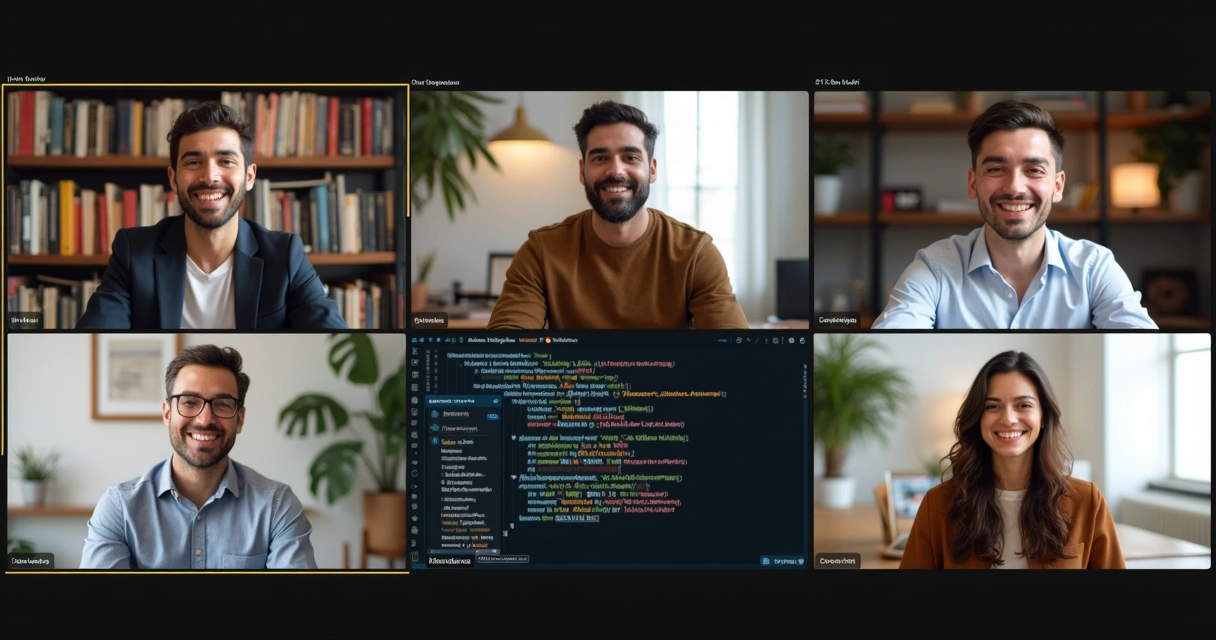If you are searching for web experts who can push your business forward, you have likely heard about Laravel—one of the most reliable and powerful PHP frameworks available. But even more, you might be wondering not just how to hire the right developer, but how to make sure you get someone with advanced web skills who can genuinely deliver value. Over the years, working as a Senior Software Engineer and digital nomad on projects ranging from large-scale web apps to high-traffic e-commerce, I have seen firsthand just how much the right Laravel developer changes the game. Today, I want to walk you through the process, highlight what to look for, common pitfalls (yes, I have met a few), and strategies that ensure your investment pays off.
Why advanced Laravel developers matter more than ever
First, I want to address why web application talent is in such high demand. Modern digital businesses, whether startups or enterprises, need applications that are not just functional but adaptable, fast, secure, and robust. Web developers are more in demand than ever due to rising e-commerce, increasing mobile device usage, and the need to adapt to fast-changing technologies. Studies cited in the Jessup University blog show that companies want these advanced skills to build future-ready platforms.
The U.S. Bureau of Labor Statistics backs this up, projecting 16% job growth for web developers between 2022 and 2032—much faster than the average. The fast-paced expansion in software, e-commerce, and AI integration is reshaping the field, making it all the more important to partner with developers who understand both code and business.
Core competencies when hiring a Laravel developer
Over the years, I’ve had countless discussions with business owners about what really sets an advanced Laravel developer apart. Some core competencies come up every time:
- Fluency in PHP: Laravel is a PHP framework, so mastery here isn’t optional.
- Experience with full stack development: The best talent can move from backend to frontend. They understand JavaScript frameworks, CSS, HTML5, and how everything interacts.
- Expertise in API integration: Modern apps don't exist in a vacuum. Developers need to connect services and craft secure, scalable APIs. More about this on API integration in modern systems.
- Database migration & management: Experience moving, optimizing, and structuring databases—especially MySQL and PostgreSQL—is non-negotiable.
- Cloud proficiency: Familiarity with AWS, DigitalOcean, or similar providers, is invaluable for keeping your infrastructure agile.
- Security practices: Data breaches increasingly hit even small businesses, so a solid approach to data protection, validation, and testing is a must.
- Code quality and standards: Clean, maintainable code is what allows for easy updates and less technical debt. This is the backbone of scalable projects.
Great developers think beyond the code—they understand your business goals.
I have seen projects succeed or stumble based simply on whether this checklist was met.
Understanding the recruitment process for Laravel experts
Once you have outlined what you are looking for, you face the practical challenge: where and how do you find someone who delivers more than just code? Here’s what I recommend, drawing from the many successful partnerships I have helped foster in my own work as documented on my project portfolio.
1. Portfolio review and technical vetting
Think of the portfolio as a developer’s true résumé. I always look for:
- Relevant projects: Did they lead on e-commerce, SaaS, or enterprise apps?
- Modern technology stack: Are tools and libraries up-to-date?
- Test coverage and documentation: Is there proof of scalable, maintainable work?
Portfolios provide a window into a developer's style and approach. I have seen some applicants whose code looked impressive on the surface, but lacked substance when it came to teamwork or adaptability. Always pair a portfolio with technical testing—this could be a take-home assignment or whiteboard-style session.
2. Interviewing for both hard and soft skills
Yes, technical skills matter. But, from what I’ve seen, advanced web app development is collaborative by nature. Assessing communication, teamwork, and problem-solving skills is just as significant as testing for code quality. Example questions I use:
- Explain how you would design and secure a RESTful API in Laravel.
- How do you structure your migrations and manage database changes in a live system?
- How do you handle conflicting pull requests or code reviews?
- Can you describe a time you optimized for scalability in a recent project?
I always ask developers to share not just their solutions, but stories behind tough decisions or obstacles—because good stories often reveal deeper skills.
Evaluating soft skills: More than just code
I’ve worked on distributed teams from four continents and learned something: Technical skill alone isn’t enough to drive a project to success. Advanced Laravel developers who shine usually have:
- Communicative clarity: Making architecture decisions, reporting blockers, and asking the right questions proactively.
- Teamwork abilities: Not every developer can adapt to established team cultures, especially during rapid growth phases.
- Time management: Freelancers and remote workers especially need to manage deadlines sensibly.
- Adaptability: Keeping up with changing business targets, integrations, or technologies.
The best projects are built on trust and constant communication.
I place a strong emphasis on reliable communication and make a point of integrating smoothly into both in-house and remote teams, as seen by the consistent feedback from clients on my work experience page.
Dedicated Laravel developer or expand your internal team?
This comes up all the time: Should you keep everything in-house or look outside for a specialist? There is no one-size-fits-all answer, but from my own experience providing freelance development, here’s how I break it down:
- Dedicated freelancer or consultant: Faster onboarding, breadth of project experience, flexible contracts, and cost savings on benefits or recruitment overhead. Ideal for project-based work or when seeking specialized skills.
- In-house hire: Greater day-to-day access, deep institutional knowledge over time, but costs (salary, benefits, HR overhead) can add up. Risks stagnation if skills aren’t kept up to date.
I believe hiring a dedicated Laravel specialist as a freelancer (like I offer through my service page) balances cost with expertise, and allows your team to scale up or down as needed. Hiring externally can bring in current best practices and fresh perspectives that an internal team might not possess.
 Cost-effective strategies for hiring without lowering standards
Cost-effective strategies for hiring without lowering standards
Budget is usually top of mind. Companies want results but are wary of spiraling costs. The most interesting insight here comes from the U.S. Bureau of Labor Statistics, which shows wide salary swings based on region. For example, California web developers average over $121,000, while New York and Texas average around $94,000–$98,000. Remote and offshore hiring can save money without forcing you to compromise on developer quality.
But how do you make sure remote doesn’t mean risky?
- Vet with real test projects: A paid pilot task often reveals more than any interview.
- Ask for recent client references: A quick call or email with a prior client will tell you if the developer delivered on promises.
- Set clear, measurable outcomes: Define milestones, deliverables, and communication standards up front.
- Focus on results, not hours: Many remote freelancers like myself work efficiently and transparently, reducing the management overhead common in large teams.
Remote doesn't have to mean distant.
Onboarding and building long-term collaboration
I have often been brought into projects mid-stream, sometimes after a team change or a failed first attempt. I learned that immediate, structured onboarding is essential. Here’s how I ensure smooth starts for new clients:
- Kickoff call: Clarify objectives, introduce key team members, set communication channels (Slack, Trello, etc.), and lay out expectations.
- Access setup: Provide fast, secure repository and server access—never delay necessary credentials, but prepare backup measures for security.
- Documentation handover: Share existing docs, code style guides, and any legacy notes before coding starts.
- Checkpoints in the first two weeks: Early feedback cycles avoid misunderstandings and ensure the developer’s thinking aligns with your goals.
Trust, reliability, and ongoing feedback keep collaborations strong, which is why I offer not only technical builds but longer-term support, bug fixes, and scaling advice—this keeps your codebase future-proof and your business running smoothly.
 How to test a Laravel developer's real-world skills
How to test a Laravel developer's real-world skills
When it comes to hiring, resumes can mislead. I sometimes see developers exaggerate their Laravel background, only to struggle with even basic database migrations. Over time, I’ve refined my own list of practical questions to ask in interviews that go beyond trivia:
- Describe the differences between Eloquent and Query Builder. When would you use each?
- How would you migrate large volumes of data with minimal downtime?
- Show me how you structure your Laravel Service Providers. Why this way?
- Can you extend Laravel validation rules to handle advanced custom scenarios?
- How do you secure API endpoints and deal with rate limiting?
- Walk me through a live deployment—what are the steps to release, monitor, and rollback?
A good developer will answer these using concrete past examples and may even show documented work or open-source contributions. In my own experience, practical code snippets and walk-throughs reveal more skill than years of listed experience.
How to verify coding standards, security practices, and ability to scale
Even strong programmers may overlook best practices that keep your applications resilient. For instance, in my work with startups and larger companies, coding standards were often a blind spot before I joined. Here’s how I ensure high standards in both my freelance and project-based work:
- Enforce PSR and community style guides: Consistent structure reduces onboarding time and future bugs.
- Automated tests: Feature and integration tests at every stage.
- Security audits: Regular codebase reviews to spot vulnerabilities, especially in authentication and data handling.
- Continuous integration: Automated pipelines catch bugs and regressions before they reach production.
- Monitor and tune for scalability: Use of caching, queue systems, and asynchronous jobs to ensure speed even as traffic grows.
Scalability isn't luck—it's a result of choices made from day one.
If your chosen developer isn’t pushing for these standards, you’re at risk of costly technical debt. I believe in transparency, which is why my clients can always review code, tests, and pull requests in real time through shared repositories and agile boards.
Key differences: Hiring through freelancing vs agencies or in-house
Some competitors operate as large agencies, promising all-in-one teams. While that sounds appealing, the reality sometimes looks like this: multiple layers of management slow decision-making, skill levels are uneven, and the costs can be much higher than advertised. When you work with a senior individual, such as myself, you get:
- Direct communication with the developer responsible for your project
- No miscommunications or slow feedback due to middlemen
- Clear accountability—there’s no hiding behind a team when it’s just you and the client
- Flexible schedule and quick pivots as your needs evolve
My clients have consistently said that this approach allowed them to feel in control and see results faster. Though certain agencies may have more resources, I find that my 16+ years' experience, as illustrated throughout my articles on scalable web frameworks, brings more depth and value for growing businesses.
 Best practices for onboarding and ongoing support
Best practices for onboarding and ongoing support
An underrated element of hiring advanced talent is how you keep them engaged and productive after the contract is signed. I have learned that a smooth onboarding process directly affects code quality, morale, and project pace. Here are my hard-earned tips:
- Have well-documented repositories and READMEs ready before onboarding begins. I always make sure my setup steps are easy.
- Set up a dedicated Slack (or similar) channel for quick questions—minimize emails.
- Use short intro meetings to put names to faces—not everything should be text only.
- Arrange for code walkthroughs in the first week, where both sides can share feedback comfortably.
For ongoing support—maintenance, bug fixes, and updates—transparency and process matter just as much. I recommend:
- Monthly check-ins for strategic updates
- Advance notice for planned sprints or deploys
- Document lessons learned after each major release
This way, you avoid the chaos that so often results from rushed handovers or unclear support expectations. In my freelance practice, I see this as a partnership, not just a contract.
 How to ensure your Laravel expert fits your business needs
How to ensure your Laravel expert fits your business needs
Even after vetting skills and soft factors, alignment with your business context is huge. I have been on projects where the technical talent was strong, but a poor fit for timelines, communication preferences, or company values. This is why I recommend you:
- Ask specific questions about project management tools used: Trello, Jira, or custom workflows?
- Discuss preferred meeting and update frequency. My clients appreciate regular but brief updates—no time wasted.
- Request one or two trial tasks if possible before full commitment.
There’s no replacement for talking directly to past clients or checking live apps the developer has built. I am always happy to provide both, and you can see further examples in my public project gallery.
The future outlook for Laravel and advanced web developers
With accelerating digital transformation, industry data is clear: demand for full-stack, adaptable web engineers will only rise. The U.S. Department of Education ERIC report signals that developer roles are set to keep growing strongly for the next decade and beyond. The need for skilled Laravel developers is directly tied to the digital ambitions of modern business.
In my own journey, spanning more than 16 years as a developer and digital nomad, I have worked all over the world—helping companies large and small scale their platforms. If you are looking for a true partner, not just a code vendor, there is real value in connecting with freelancers or senior consultants committed to support and innovation, not just delivery. My approach is personalized and aimed at measurable impact, as you can see from my ongoing work at Adriano Junior's experience.
 Conclusion: Choosing smarter for your next Laravel hire
Conclusion: Choosing smarter for your next Laravel hire
“How do I hire the right Laravel developer with advanced web skills?” After all my years in this field, my answer is: focus on broad skill sets, not just tick-box PHP knowledge. Review portfolios deeply, run technical and soft skill interviews, and push for communication and business alignment as much as technical proof. Cost savings are possible with remote or freelance hires, but never settle—stress real client references, real test projects, and clear onboarding.
If you are planning your next project or need ongoing support to transform or scale your web application, I would be glad to discuss how I can help. Choosing a senior partner is less risky—and much more powerful—than hoping an agency will deliver the focus your project needs. For more insight and case studies, you can check out my showcased work or learn more about available services at my website. If you are ready to discuss specifics, feel free to reach out and let’s make your business goals a reality together.
Frequently asked questions
What is a Laravel developer?
A Laravel developer is a programmer who specializes in building web applications using the Laravel PHP framework. They design, build, and maintain dynamic web services, often handling both backend processes (like database management and API development) and sometimes extending to frontend work using JavaScript and CSS. Most Laravel experts are skilled in PHP, but the best also understand full stack concepts and cloud deployments.
How do I find skilled Laravel developers?
To discover top Laravel developers, start by reviewing reputable portfolios, checking open-source contributions, or seeking referrals from trusted sources. Online platforms and personal networks help, but in my experience, hiring through direct contact—where you can vet soft skills, ask for references, and request test projects—yields the best results. You can view examples of advanced Laravel work on my own project gallery.
How much does hiring a Laravel developer cost?
The cost varies widely. Salaries for web developers differ depending on location, experience, and whether you hire in-house, freelance, or offshore. For example, the U.S. Bureau of Labor Statistics lists annual mean wages between $94,340 and $121,490 in the most competitive states. Freelance or remote experts may quote by project or hourly rate, which sometimes results in more efficiency and cost savings.
What skills should a Laravel developer have?
They should be fluent in PHP and the Laravel framework, with practical knowledge of full stack concepts, database migration, RESTful API design, security best practices, and code quality standards. Strong communication and the ability to work in teams, plus experience with tools like AWS, Docker, or Vue.js/React, make the developer much more valuable.
Is it worth hiring a dedicated Laravel developer?
Absolutely. A dedicated Laravel specialist can move faster, adapt more flexibly, and often deliver higher-quality code compared to generalists. They keep up with changes in technology and framework updates, and a freelancer or consultant (like myself) often brings a broader perspective from having worked across industries. This helps your project avoid common pitfalls and achieve a smoother launch or ongoing growth.
